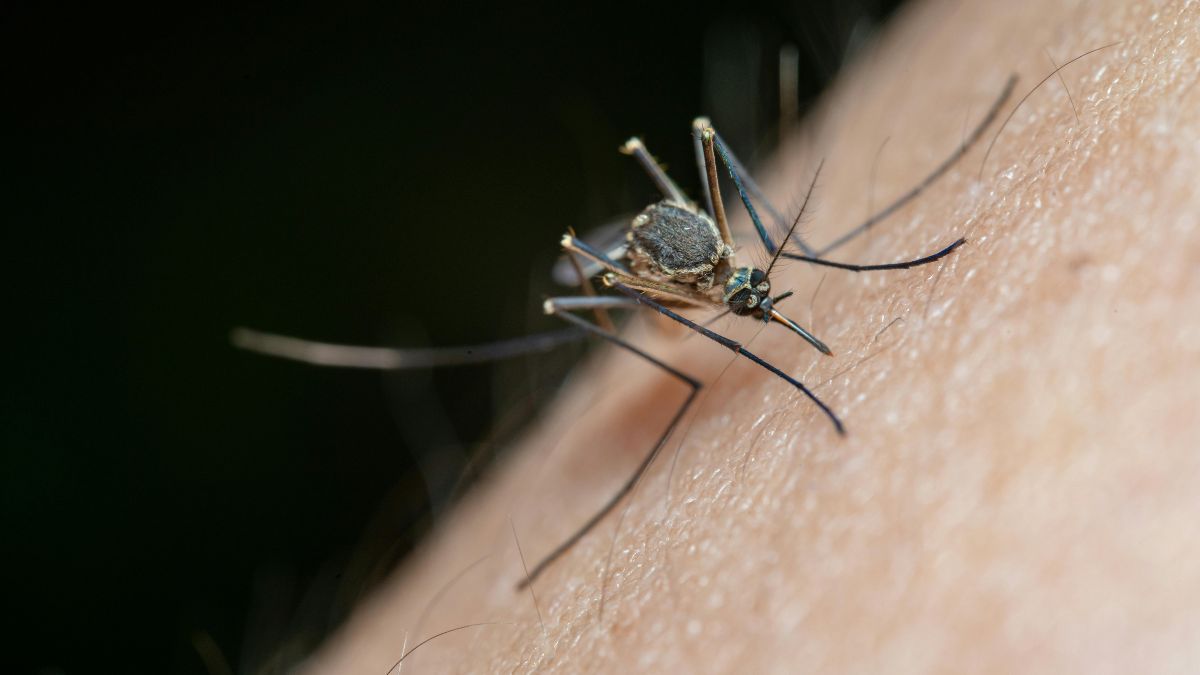Scientists from Australia have developed a new weapon against battling deadly diseases caused by mosquitoes: genetically engineered mosquitoes with “toxic” semen.
While the concept may sound unusual, this groundbreaking technique could revolutionise global public health by reducing the spread of life-threatening illnesses like malaria, Zika, and dengue fever—diseases that claim countless lives every year.
“This innovative solution could transform how we manage pests, offering hope for healthier communities and a more sustainable future,” Sam Beach, lead author and scientist from Australia’s Macquarie University of the study told CBS News.
But what exactly is this ‘toxic male technique,’ and how does it work? Here’s what we know so far.
What is the ‘toxic male technique’?
The “toxic male technique" involves breeding mosquitoes that express venomous proteins in their semen.
When these genetically modified males mate with females, the toxic proteins get injected into the female mosquitoes, which reduces their lifespan significantly.
“Ideally, what we’re trying to achieve is: a male mosquito mates with a female and then she dies immediately,” Beach told The Guardian.
This method specifically targets female mosquitoes, as they are the ones that bite humans and drink blood. Female mosquitoes typically mate within 24 to 48 hours of emerging, but they can live for several weeks, continuing to spread diseases during that time.
The scientist also explained that this technique could be an effective way to quickly suppress outbreaks of mosquito-borne diseases, without relying on large-scale pesticide use, which often harms the beneficial species.
The study, published in the peer-reviewed journal Nature Communications, found that the toxic male technique could reduce blood-feeding by female mosquitoes rates by 40 to 60 per cent.
Promising findings from early trials
The first proof-of-concept trials were conducted using fruit flies, a species commonly used in labs due to their short two-week life cycle.
The results showed that female flies mating with “toxic” males experienced a significantly reduced lifespan.
Maciej Maselko, a researcher, explained to CBS News that the next step would be to trial the method in mosquitoes.
However, before releasing genetically modified mosquitoes into the wild, safety testing remains crucial.
“We still need to implement it in mosquitoes and conduct rigorous safety testing to ensure there are no risks to humans or other non-target species,” Maselko said.
To ensure safety, the team is investigating “conditional expression” techniques, which allow specific genes to be activated only under certain conditions. This would ensure that the toxic trait is triggered only when necessary.
It is to be noted that genetic engineering has long been used to control mosquito populations that spread diseases. Traditionally, this has involved releasing large numbers of sterile male insects to slow reproduction.
However, the research team noted that computer models suggest techniques that actively kill female mosquitoes could be much more effective.
“With this approach, we can immediately reduce the size of the female mosquito population and then hopefully get a really rapid reduction in the spread of these vector-borne illnesses,” Beach told The Guardian.
Why this development is crucial
This scientific breakthrough is especially important as mosquito-borne diseases such as malaria, dengue, Eastern equine encephalitis (EEE), and Zika continue to present significant public health challenges worldwide.
According to the World Health Organization (WHO), mosquito-borne diseases account for more than 17 per cent of all infectious diseases, causing over 7,00,000 deaths annually.
Last year, a strain of encephalitis-causing virus called the Chandipura Virus (CHPV) caused an outbreak in Gujarat, Maharashtra, Madhya Pradesh and Rajasthan in which 51 people died.
Globally, malaria remains one of the deadliest mosquito-borne disease, responsible for 95 per cent of global fatalities in Africa, with young children being the most vulnerable.
By focusing on the mosquitoes that spread these deadly diseases, this new method offers hope for healthier communities and a future where illnesses are far less widespread.
With input from agencies


)

)
)
)
)
)
)
)
)



